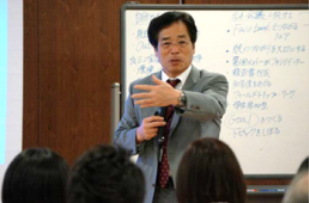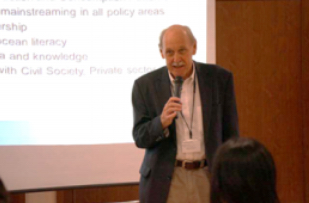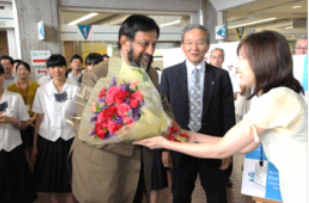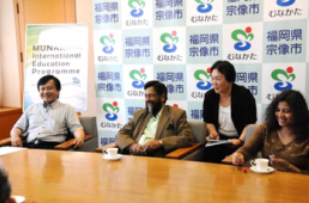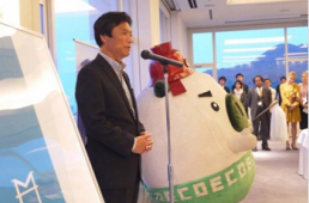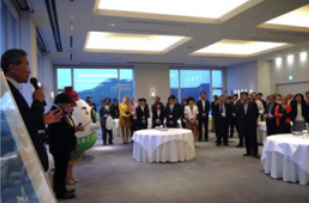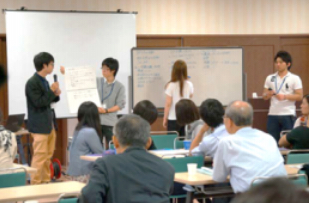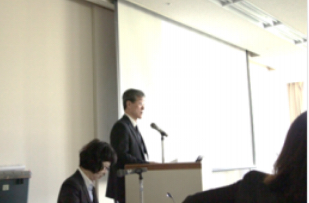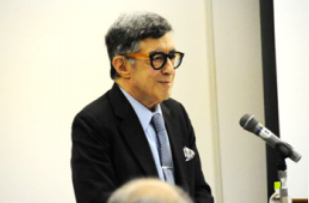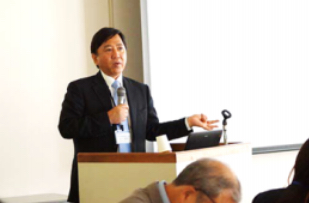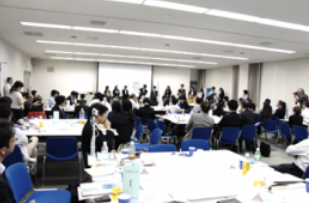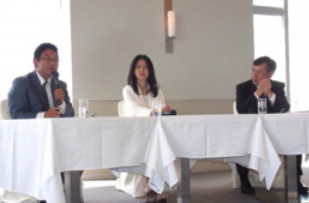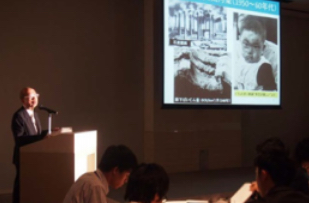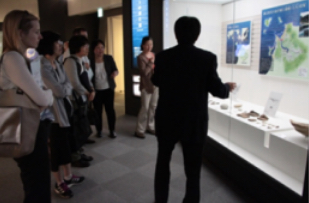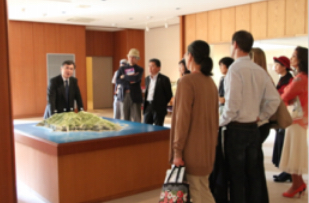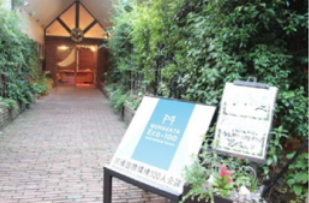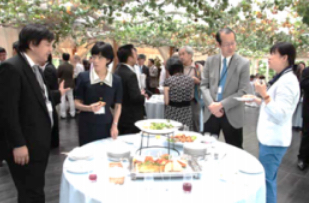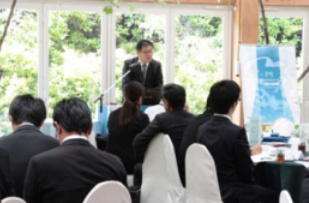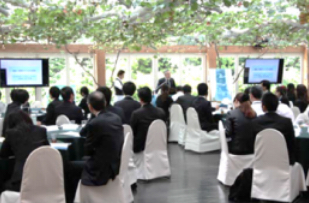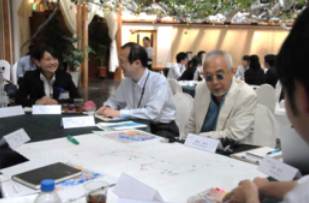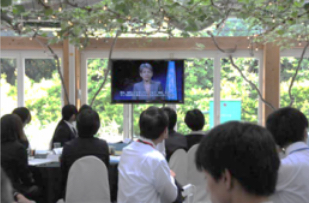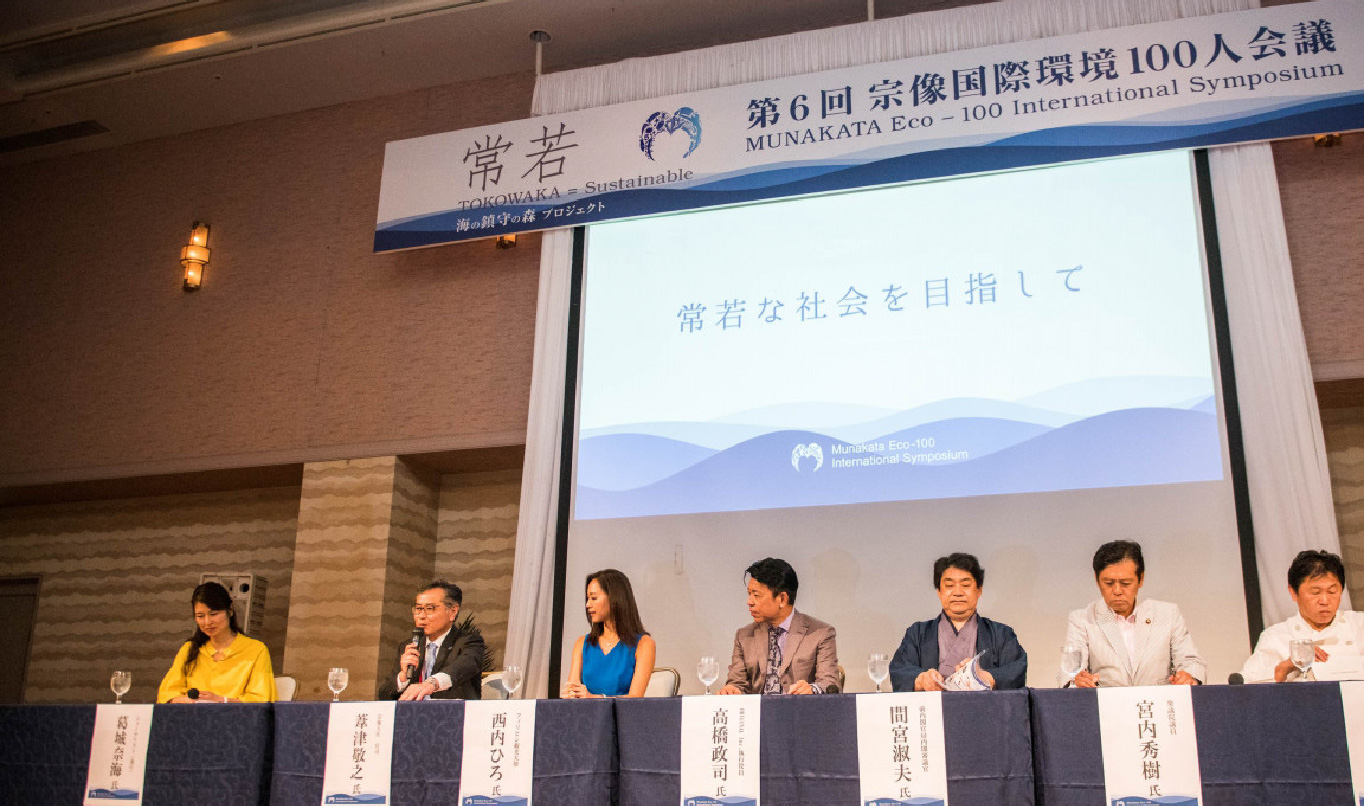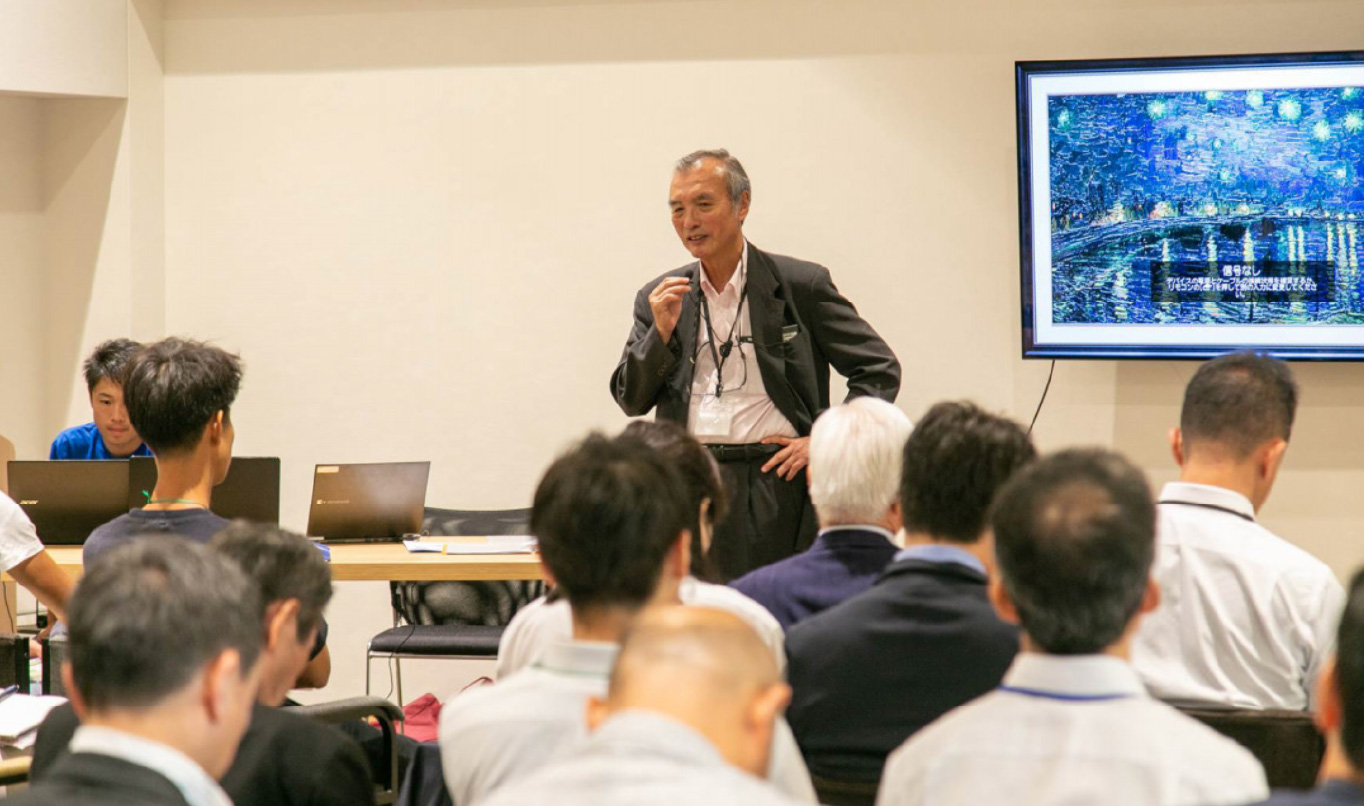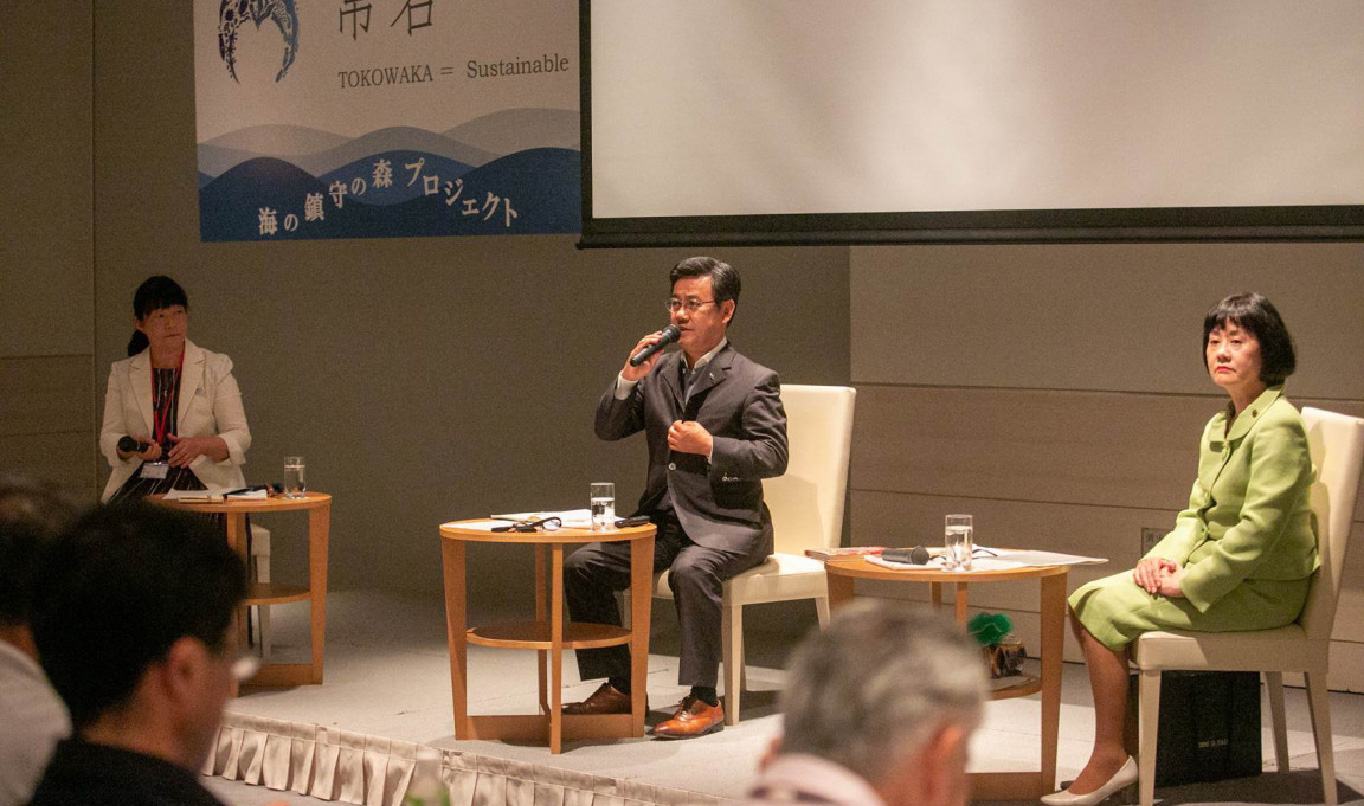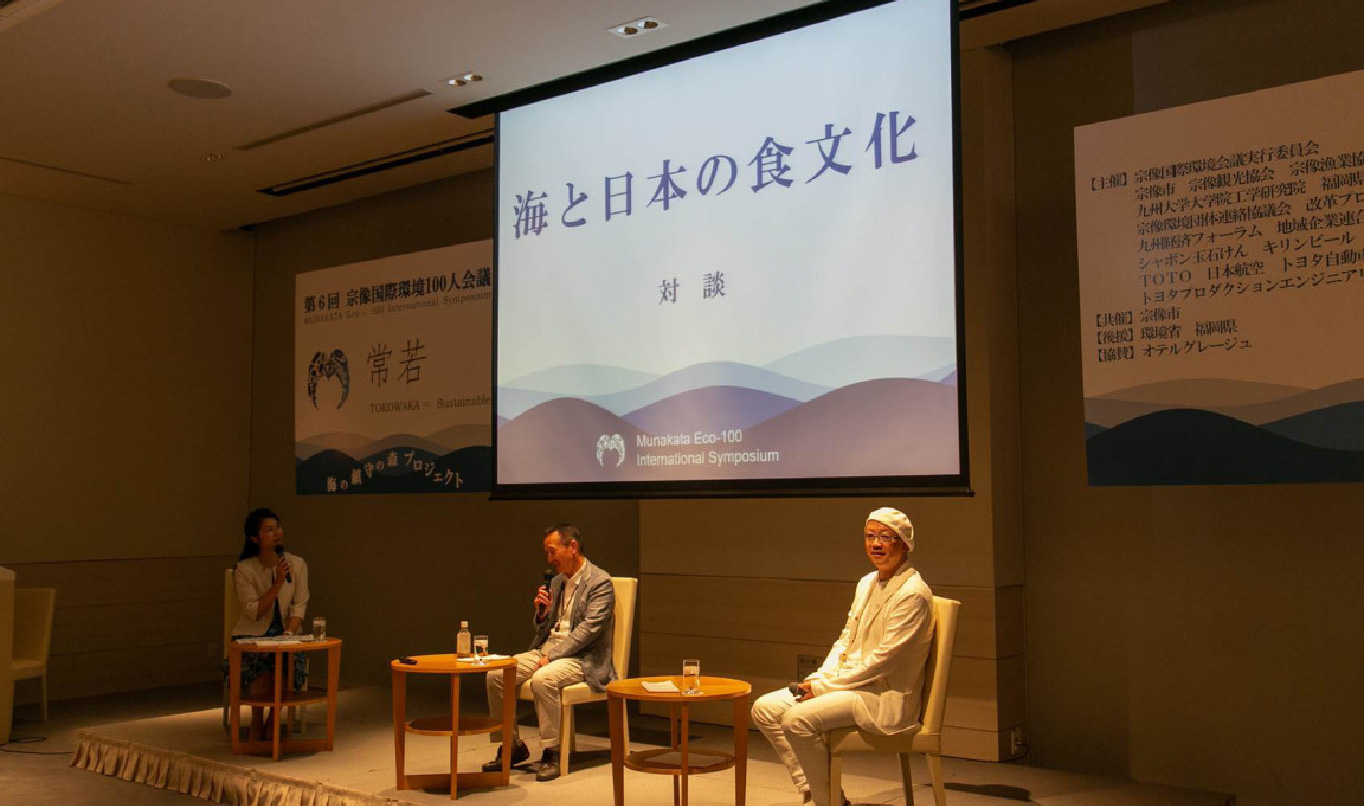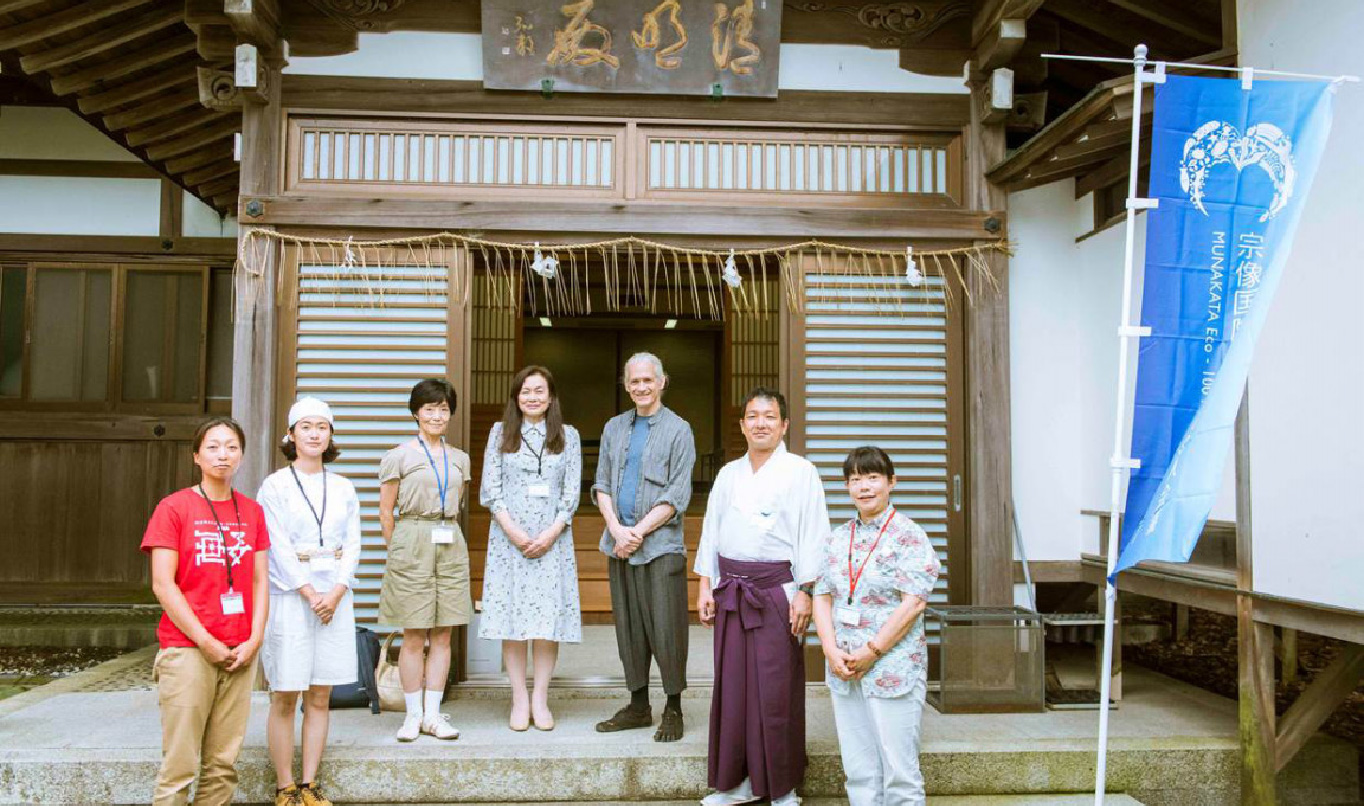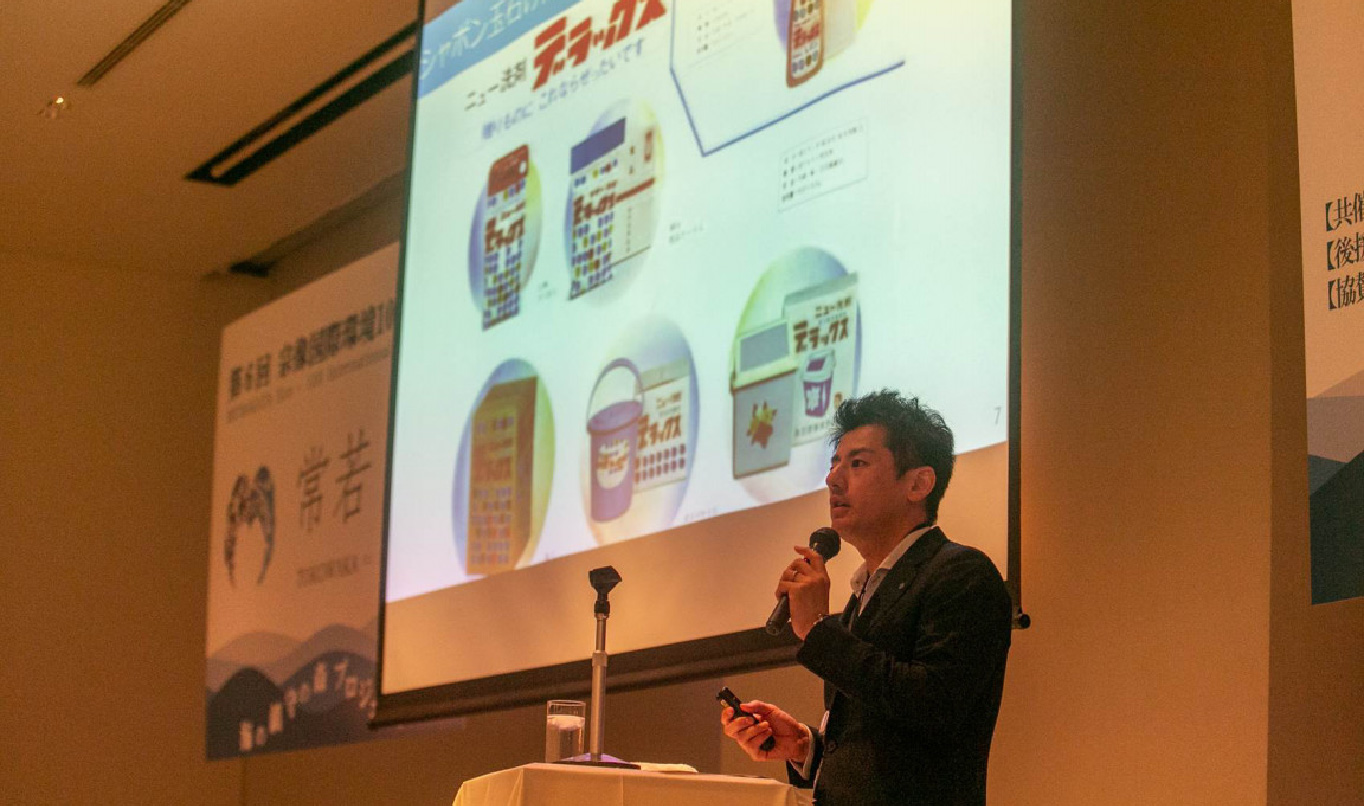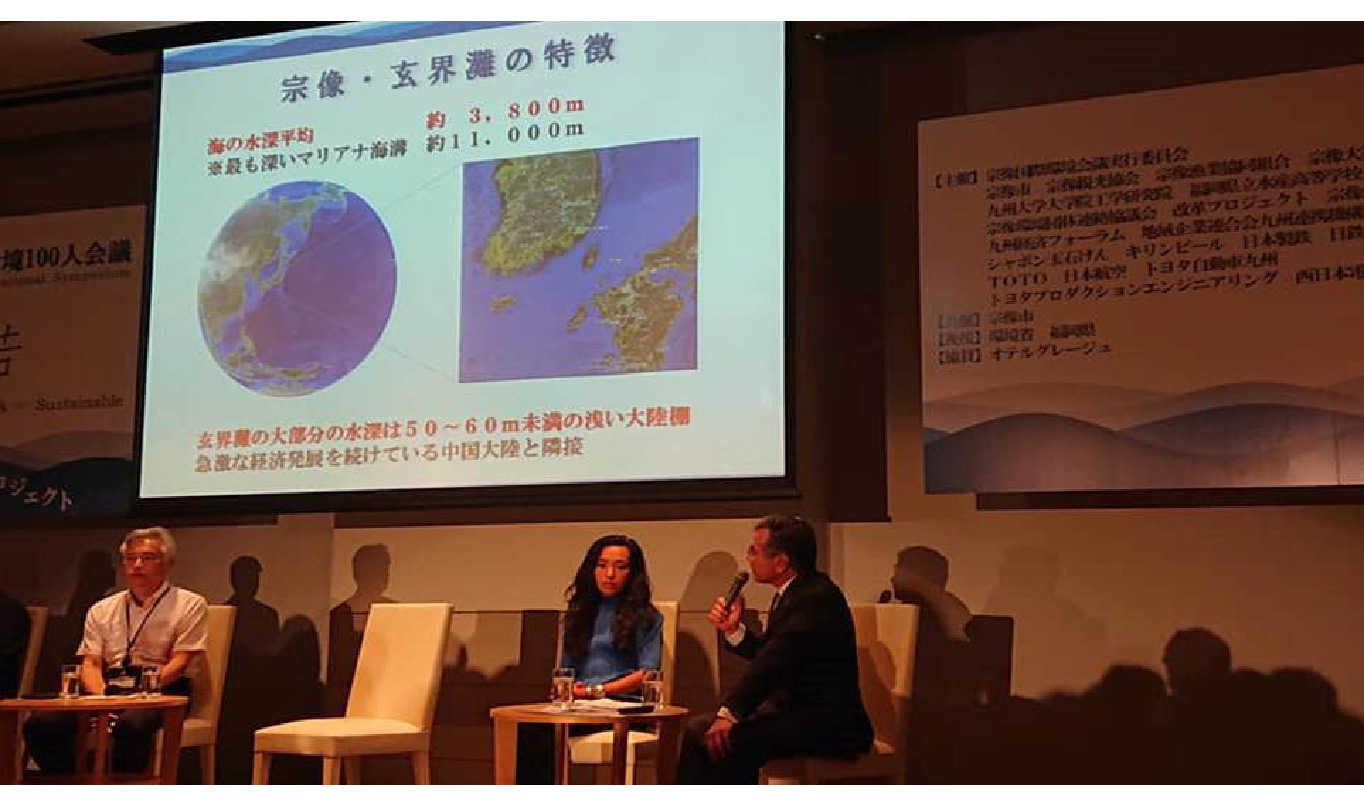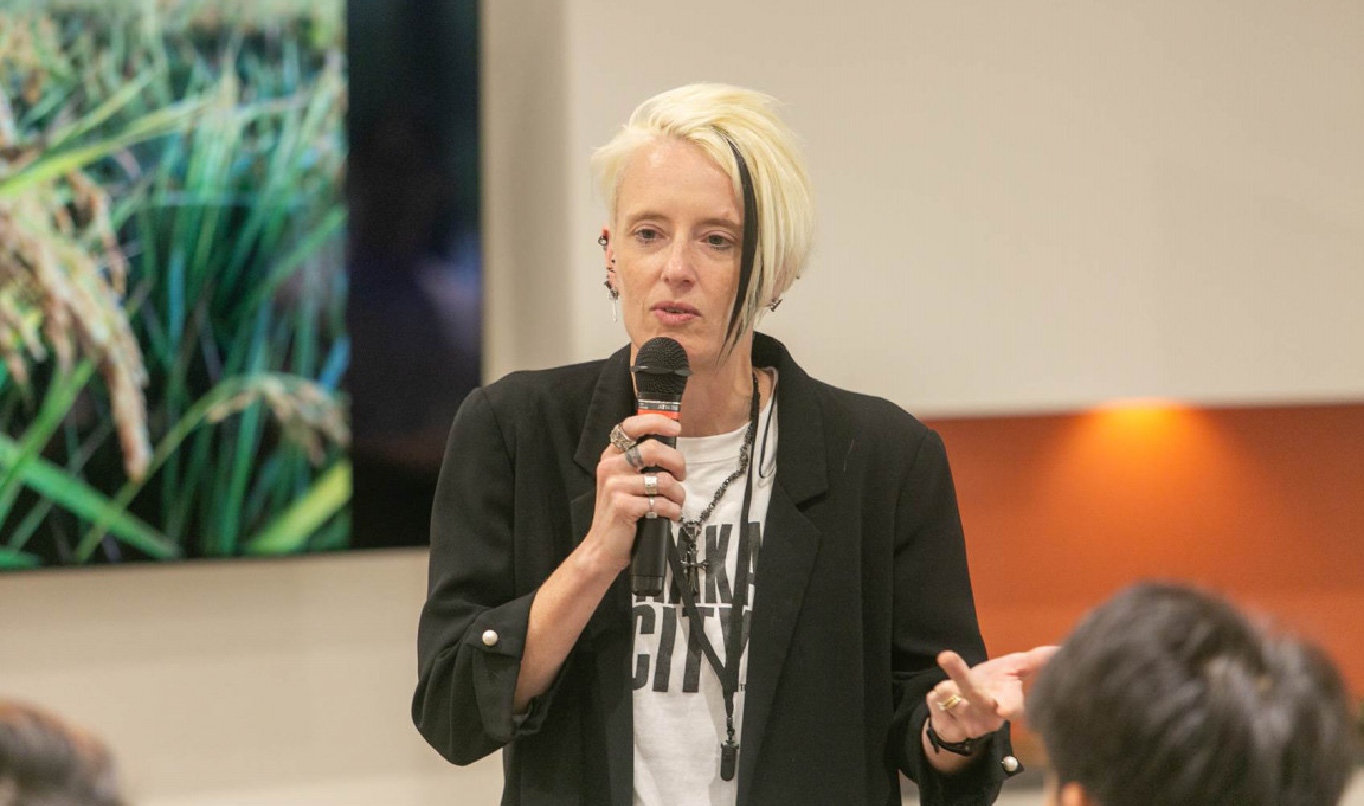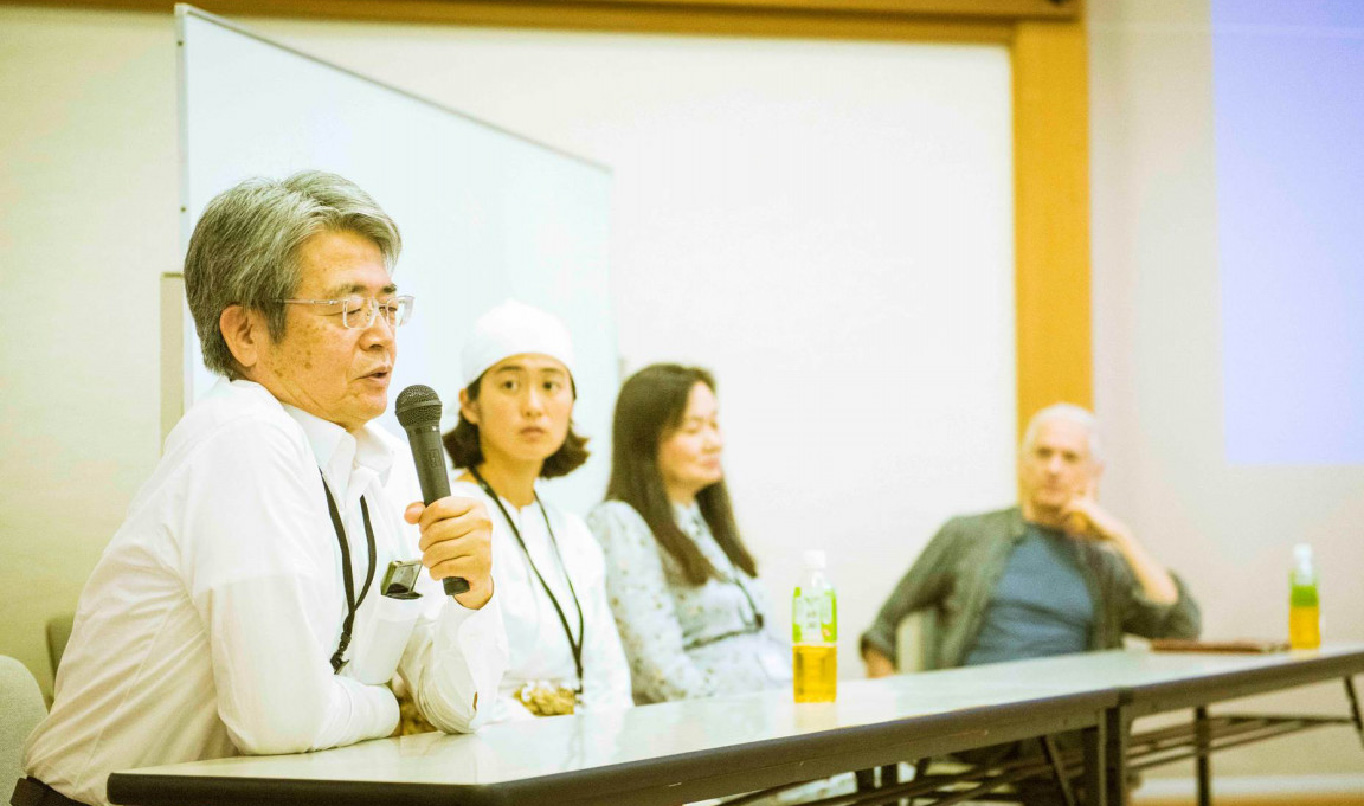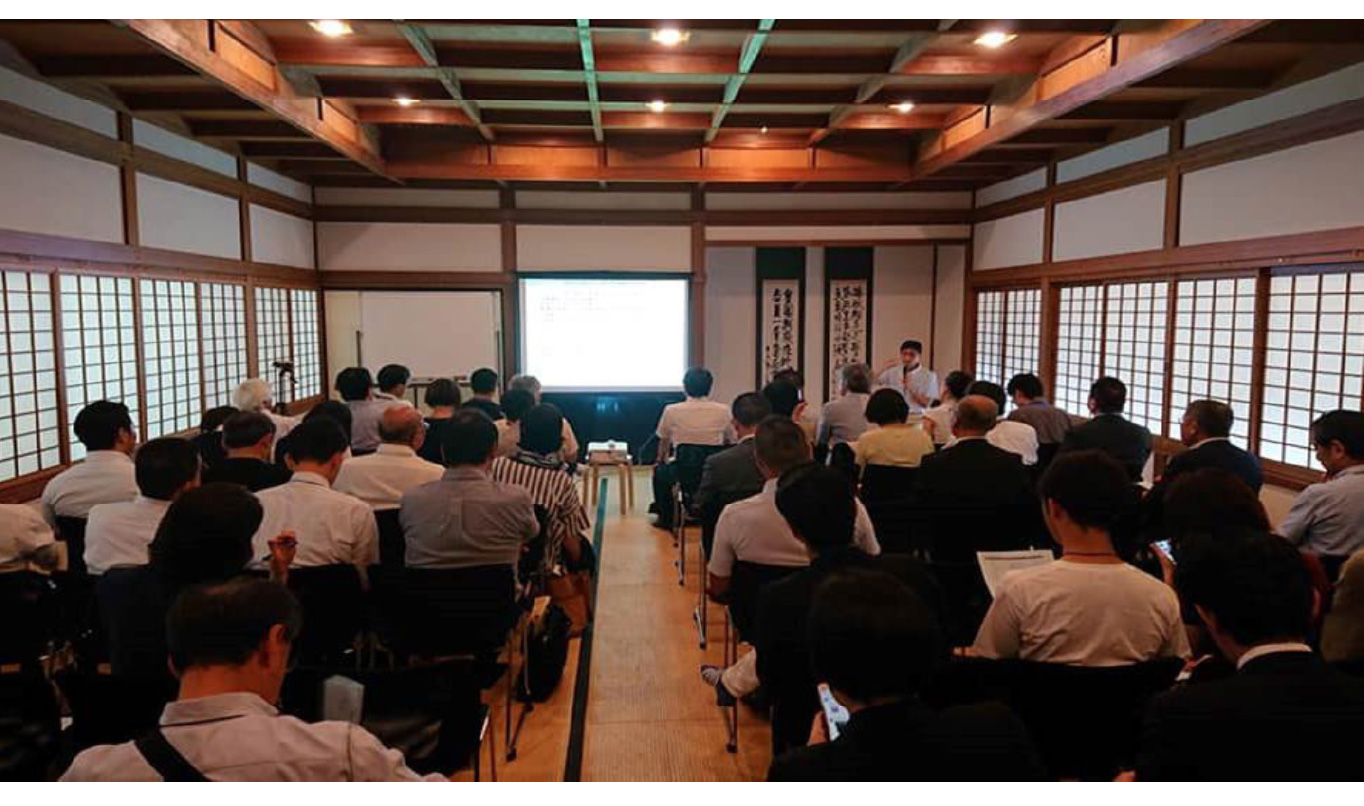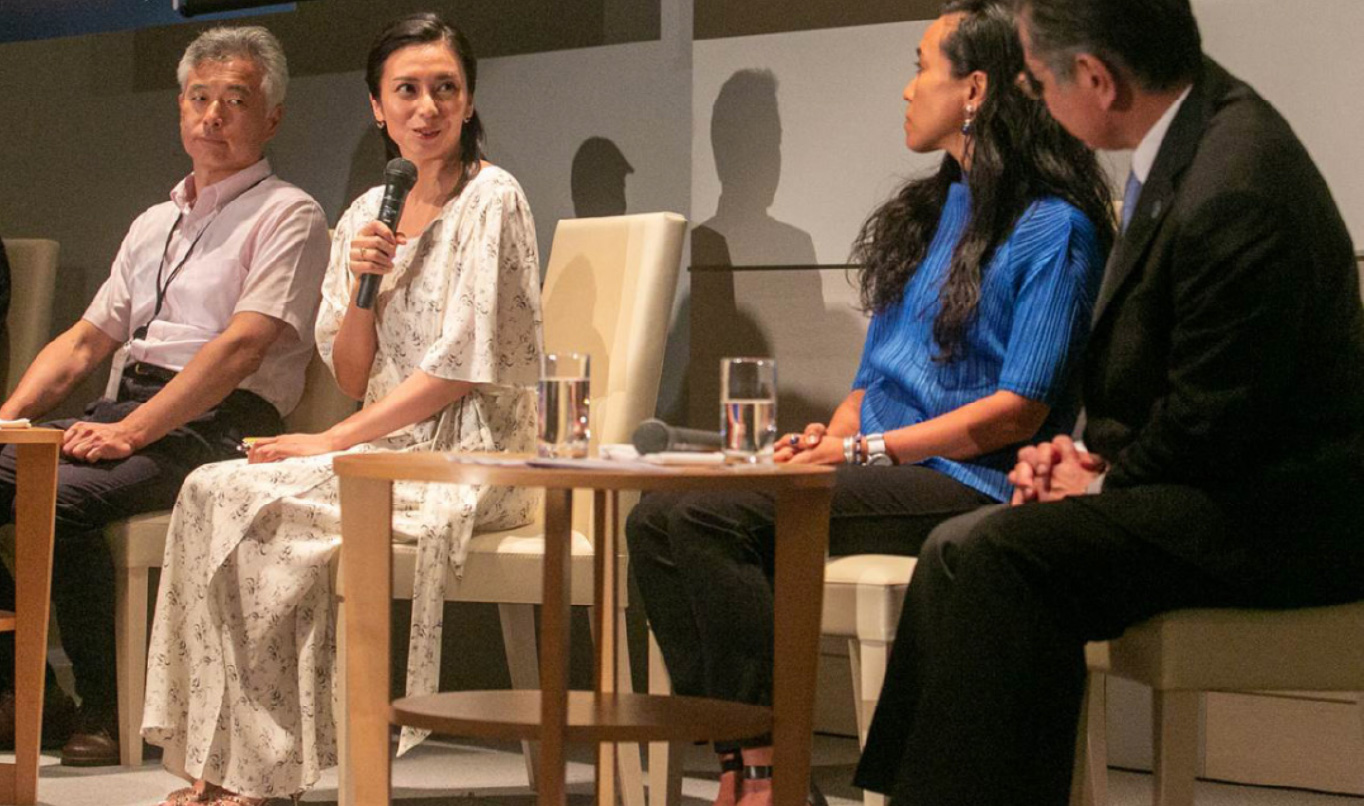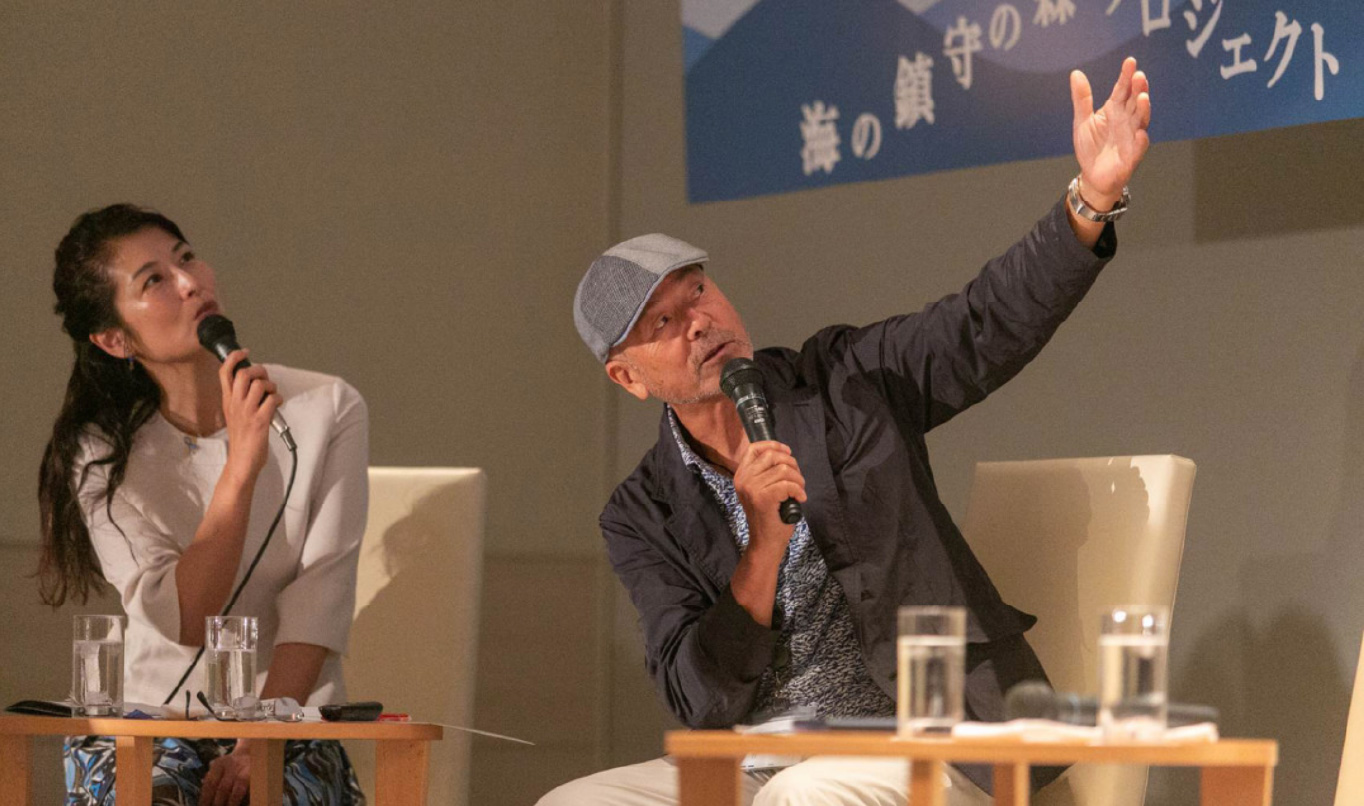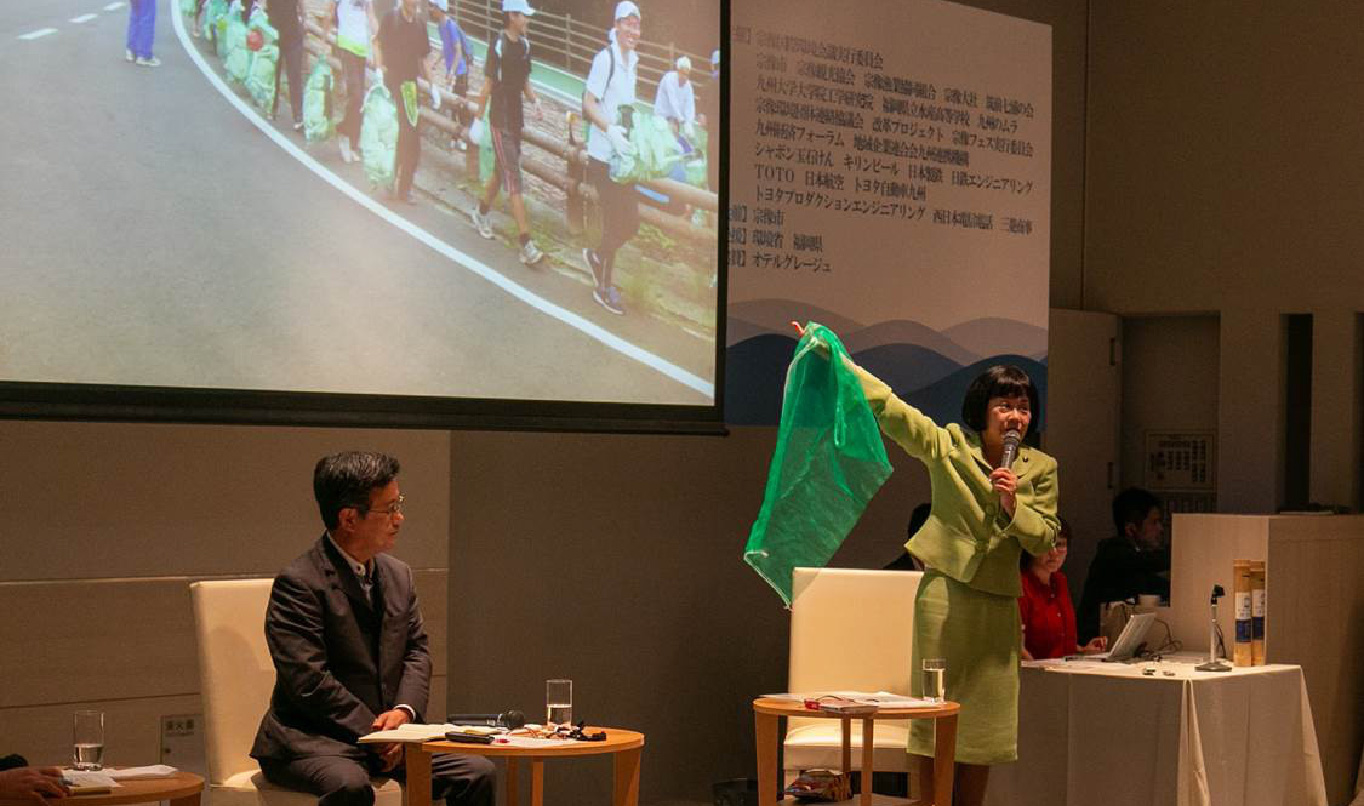Archive
Past Symposia (2019 - 2014)
2019
6th: “Tokowaka”
August 23-25, 2019
Declaration:
The 6th Munakata Global Environmental Symposium, themed “Tokowaka,” took place over three days and involved 800 participants, who engaged in lively debates about what constitutes a sustainable regional society. “Tokowaka,” or “everlasting youth,” refers to the never-ending circle of life, through which nature regenerates itself in order to maintain its essential form, and symbolizes the circularity of time. Ever since the Industrial Revolution, humanity has walked the path of industrialization through the use of fossil fuels, obtaining material wealth as a result, and built a socioeconomic system founded on mass production, mass consumption, and massive amounts of waste. The resources required to sustain this system have come to exceed those available on our planet – a development that now threatens the foundations of human life itself. Looking particularly at the sea, our current socioeconomic structure has caused a rise in ocean temperatures and widespread pollution, including in the form of plastic waste. These changes are already impacting our daily lives. From here on, we must look to nature and natural cycles in order to learn how to coexist with our planet, and bring about a major reorientation of the global socioeconomic system. We believe that this change should be based on gratitude for the blessings of the forests, mountains, rivers, and sea, and on a humble attitude to nature – both ideas that the Japanese people have held dear since ancient times. We have agreed to follow in the footsteps of our ancestors, who came together here in maritime Munakata and built a future together, to draw on their wisdom, and to establish, as soon as possible, a regional sphere of circular coexistence. Looking ahead to Society 5.0 and beyond, we hope to spread the philosophy of Tokowaka beyond Munakata and gain understanding for it from the international community. Tokowaka is not simply a different word for sustainability; it imbues sustainability with a purpose and provides a vision for an ideal relationship between humanity and the planet. We will seek to build a network with other sites on the World Heritage in Danger list that are affected by changes in the oceans, relaying the message of Tokowaka to a global audience. Today, here in Munakata, we pledge to deepen international cooperation and take action in order to bring about an “eternally young” regional society.
Signed,
Participants of the 6th Munakata Global Environmental Symposium, August 25, 2019
2018
5th: “Water and the Circle of Life – Awe and Gratitude for Nature”
August 24-26, 2018
Declaration:
The area around Okinoshima, the “Island of the Gods,” and associated sites in the Munakata region, which were designated a World Heritage Site last year, is a place where faith in the sea has flourished since ancient times. That sea, however, has been affected by dramatic change in recent years. Changes in the marine ecosystem have had a severe negative impact on many fishermen and other people who rely on the sea for their livelihood.
The 5th Munakata Global Environmental Symposium, themed “Water and the Circle of Life – Awe and Gratitude for Nature,” took place over three days and saw lively debates around the idea of sustainability. Participants shared their concerns about issues such as frequent heavy rain, the impact of global warming on agriculture, and marine pollution in the form of microplastics, and came to the understanding that the circulatory way of life once practiced in Japanese villages has been irrevocably transformed by the pursuit of convenience in only half a century.
In ancient Japan, as detailed in the myth of Umisachi and Yamasachi, the people of the sea and the mountains worked together to bring about abundance based on the bounty of both spheres, all while retaining awe and reverence for nature. However, our current ways of mass production, mass consumption, and relentless pursuit of economic gain have greatly transformed various countries, if not the entire world, in only a single century. Dealing with the effects of this transformation is an urgent task.
Globalization has led regions and countries around the world to lose their diversity and circulatory lifestyles. Reviving them will require aiming for a society rooted in local practices, which once supported a circulatory model that incorporated the exchange of rice, seafood, and other organic goods alongside a monetary economy.
Today, here in Munakata, we pledge to draw on the wisdom of our ancestors to bring about an environment and a society of life and civilization that is compassionate, kind, and allows for the coexistence of nature, society, and the economy.
Signed,
Participants of the 5th Munakata Global Environmental Symposium, August 26, 2018
Students’ Declaration
“Cultivate the Sea.” That is the message we students received from Hideaki Nakata, professor emeritus at Nagasaki University. Cultivating the sea can be difficult to imagine, but Professor Nakata taught us that we should learn about the oceans, which cover 70 percent of our planet’s surface, and seek to leave abundant seas to the next generation.
Modern life can seem convenient and plentiful, but it is built on the exploitation of nature. Us humans are far too indifferent to this fact. We should seek to coexist with marine life, and understand that our own lives are dependent on the circulation of nature. How should we respond to the challenge set forth by all the trash that washes up on our shores? We need to rethink our way of life by looking at things from the perspective of the sea.
In order to leave an abundant sea to the next generation, we students pledge to continue building artificial fishing reefs and cleaning beaches. We also pledge to be active in relaying the results of our surveys to a wide audience, raise awareness of issues related to the marine environment by holding environmentally focused fieldwork sessions in class, and broaden the scope of our activities to make them more sustainable so that they can be taken up by the next generation when the time comes.
Signed,
Participants of the Students’ Panel at the 5th Munakata Global Environmental Symposium, August 25, 2018
2017
4th: “The Great Sea, the Circle of Life – The Grove of the Sea Concept”
August 25-27, 2017
Declaration:
With the state of the global environment growing worse each passing day, this year’s Munakata Global Environmental Symposium sought to understand the current situation by inviting journalists focused on topics such as Antarctica, microparticles, and microplastics to share information. Their contributions helped participants understand the role humanity plays in the destruction of the environment.
Since ancient times, the people of Munakata have believed that the forests, rivers, and sea are all abodes of the divine, and have lived in harmony with nature while treating it with awe and respect. However, as the natural environment is now being destroyed on a global scale, even this abundant region has begun to see visible change.
This is particularly clear in the sea, which has for centuries been protected by the descendants of the ancient devotees of the three Munakata goddesses. Rising water temperatures have brought changes to the species of fish living in the area, kelp forests have been damaged, and air pollution has begun to affect the ocean as well.
Seeking to rectify this situation, we have established the “Shrine Grove of the Sea” project, working together with academics, businesspeople, and local fishermen and children to build artificial fishing reefs and plant them in the sea, clean beaches of marine litter, and conduct various other activities. However, considering the rapid pace of environmental change, the symposium concluded that more urgent action is needed.
While the understanding of various environmental issues as interconnected has started taking root in international society, it cannot be denied that some debates still treat these phenomena as temporary. With the state of the sea outside Munakata deteriorating consistently, international cooperation is considered essential. However, such cooperation will not be effective unless we achieve a reorientation of values on the individual level.
Coincidentally, Munakata will be hosting the 37th National Convention for the Development of Abundant Seas on October 29 of this year. Aimed at the preservation and development of marine resources, this convention is a valuable initiative for Japan as a maritime nation. We participants of the Munakata Global Environmental Symposium pledge to seize this opportunity to further develop the “Shrine Grove of the Sea” project and broaden the scope of its activities both in Japan and internationally.
Signed, Participants of the 4th Munakata Global Environmental Symposium, August 27, 2017








2016
3rd: “Warning From the Sea – Learn About the Past to Know the Future”
August 19-21, 2016
Declaration:
The warm Tsushima Current flows north from the equator to Munakata, washing the shores of this island-dotted region, shaping its natural environment and the life of its people.
When looking around the landscape in Munakata, one is sure to notice forested mountain peaks all around. Water runs down from these mountains, emerging from springs and flowing into the Tsurikawa river, which supports the livelihoods of the local people. The river empties into the Genkai Sea, where its water mixes with that of the Tsushima Current, creating favorable conditions for marine life. Munakata, therefore, has long been an abundant region well suited for human settlement.
Okinoshima, worshiped as a sacred island since ancient times, is where the natural diversity of the Genkai Sea coast is concentrated and where it survives in its purest form. The Tsushima Current passes through several channels before reaching the Pacific Ocean, connecting Munakata with the rest of the world. But few of us could have predicted that the great current, to which this region owes its prosperity, would come to transport and spread trash originating along its path.
Through fieldwork on islands and beaches, we have come to realize that the ocean that has given us life is facing a crisis, and that this crisis is already affecting us. Promising to heed the warning of the sea and think about the future, we pledge commitment to the following:
1. Global warming and damage to kelp forests
Global warming is already having a significant impact on Munakata. This summer, the sea temperature here rose to 30°C, making the ocean feel like a hot spring. This has caused damage to kelp forests, damaging seaweed and reducing the variety of organisms in the sea. The species of fish seen in the area have also changed. Reviving our kelp forests is an urgent task that must be undertaken without delay.
Local parties have come together to establish the “Shrine Grove of the Sea” project, which centers on building artificial fishing reefs to revive the kelp forests. We strongly hope that activities such as these will be replicated elsewhere in Japan and around the world.
2. The issue of marine waste
Munakata has in recent years been affected by large amounts of marine waste flowing to its shores from neighboring countries. Many local volunteers have started cleaning beaches to deal with this issue. We now know that plastic waste thrown into the sea turns into microplastics, which are eaten by fish and may eventually affect human health. The waste issue can be solved by reducing the amount of trash we produce. We hope that activities conducted along our shores can help influence international opinion concerning the issue of dumping and marine waste.
The dramatic environmental changes affecting the oceans, which cover 70 percent of our planet’s surface, are believed to lead to the sort of extreme weather phenomena we have seen in recent years. For that reason, reviving the marine ecosystem is extremely important and an issue that should be addressed without delay. The oceans have no borders, so international cooperation will be essential. We hope that reviving the sea in Munakata, our home, will help push international efforts in the right direction.
Signed,
Participants of the Munakata Global Environmental Symposium, August 21, 2016






2015
2nd: “Living With the Sea – Coexistence With the Sea and Forests”
May 22-24, 2015




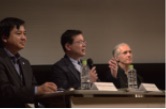
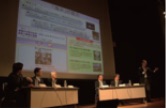
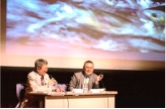
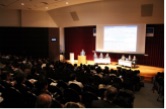
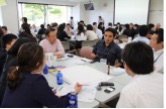
2014
1st: “The Path of the Sea Is the Path of the Future”
May 30-June 2, 2014
